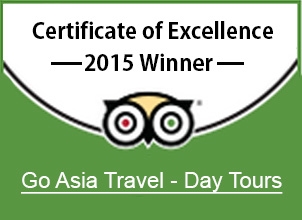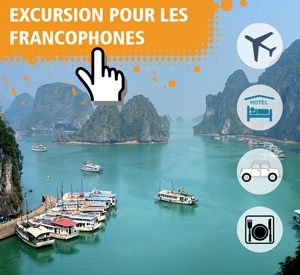Bac Ha is truly a destination of adventure and hill tribe markets. The region is really famed for its beautiful rugged karst mountain range, exotic cultures and green development. This is home to 10 Montagnard groups : the colorful Flower H’mong are the most visible, but other groups include Dzao, Giay (Nhang), Han (Hoa), Xa Fang, Lachi, Nung, Phula, Thai and Thulao.
One of Bac Ha’s main industries is the manufacture of alcoholic home brews (rice wine, cassava wine and corn liquor). The corn hooch produced by the Flower H’mong is so potent it can ignite! Bac Ha is the only place in Vietnam where you’ll find this particular moonshine; there’s an entire area devoted to it at the Sunday market. Swill some down before deciding whether to buy a buffalo or cow.
Click here to book Bac Ha Market tours
Bac Ha market
This Sunday market is Bac Ha’s big draw. There's an increasing range of handicrafts for sale, but it’s still pretty much a local affair. Bac Ha market is a magnet for the local hill-tribe people, above all the exotically attired Flower Hmong. If you can, stay overnight in Bac Ha on Saturday, and get here early before hundreds of day trippers from Sapa start arriving.
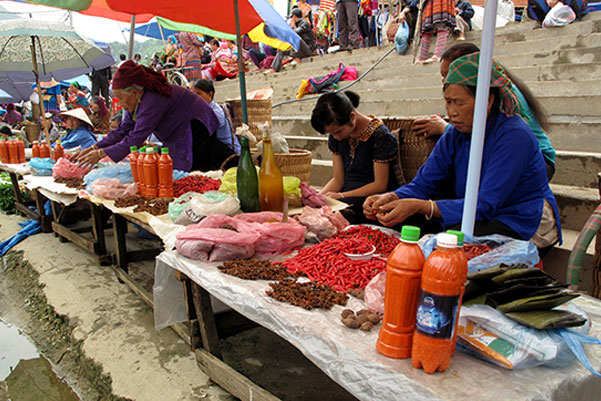
Flower H’mong women wear several layers of dazzling clothing. These include an elaborate collar-cum-shawl that’s pinned at the neck and an apron-style garment; both are made of tightly woven strips of multicoloured fabric, often with a frilly edge. Highly ornate cuffs and ankle fabrics are also part of their costume, as is a checked headscarf (often electric pink or lime green).
Can Cau market
This Saturday market, 20km north of Bac Ha, attracts a growing number of visitors. Some tours from Sapa now visit Can Cau on Saturday before moving on to Bac Ha for the Sunday market. A few Bac Ha stallholders also make the journey to Can Cau on Saturdays. It’s still a magnet for the local tribal people though, including Flower Hmong and Blue Hmong (look out for the striking zigzag costume of the latter).
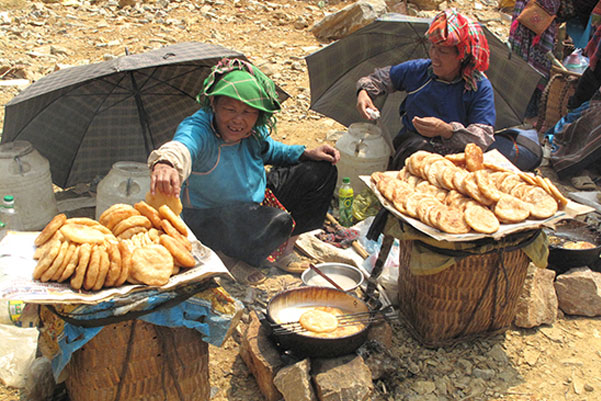
The market spills down a hillside with basic food stalls on one level and livestock at the bottom of the valley, including plenty of dogs. Locals will implore you to drink the local ruou with them. Some trips here include the option of an afternoon trek (for those still standing after ruou shots) to the nearby village of Fu La.
Coc Ly Market
This is the least visited of the popular markets, which runs on Tuesday mornings and is frequented by H'mong, Dzao and Nunh minorities. It's smaller than Bac Ha or Can Cau, but the attraction here is that a visit can be combined with a boat trip along the Chay river. It's 20 kilometres by road from Bac Ha, and Lao Cai is 48 kilometres further on, so it's easily visited en route. A two-day trip out of Bac Ha, including trekking, an overnight in a homestay, a visit to the market and a boat trip can be organised through Green Sapa Tour.
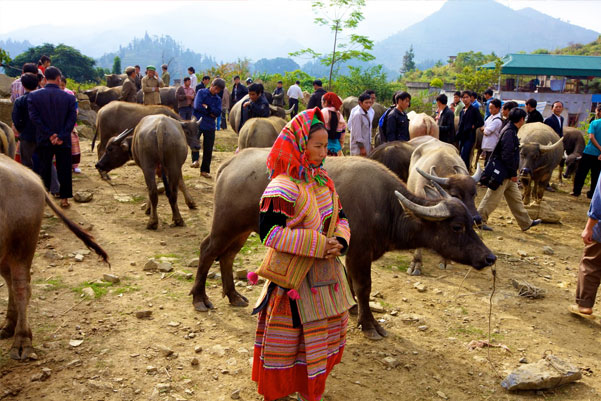
Other markets
So many markets, so little time. We've heard of, but haven't had a chance to visit, markets called Lung Khau Nhin on Thursdays, Lung Phin and Xin Man (Coc Pai) on Sundays, and judging by our map, there are more markets to be explored. See the list below, and plan your selection of market around your schedule, if you're on a tight one.
Tuesday: Coc Ly Market
Thursday: Lung Khau Nhin (south of Muong Khuong)
Saturday: Can Cau
Sunday: Bac Ha, Lung Phin, Xin Man (Coc Pai), Muong Hum (northwest of Sapa)
Visit Local Villages
There’s great hiking to remarkable hill-tribe villages around Bac Ha. The Flower H’mong village of Ban Pho is one of the nearest to town, from where you can walk to the Nung settlement of Na Kheo , then head back to Bac Ha. Other nearby villages include Trieu Cai , an 8km return walk, and Na Ang , a 6km return walk; it’s best to set up a trip with a local guide.
Until very recently most of the minority people in these hills had no formal education, but the government has opened several schools in the last few years. Most hill-tribe children now receive an education (in the Vietnamese language). Boarding schools are favoured because the communities are so spread out, so children spend the week away from their families and sleep in dormitories. Tour guides in Bac Ha can arrange visits to rural schools as part of a motorbike or trekking day trip.
Visit the palace of King Meo, Bac Ha.
Although Bac Ha is a predominantly Flowered H'Mong district, 90 years ago a Thay person named Hoang Yen Chao, and calling it after his sons name Hoang A Tuong, was made "Vua Meo" or King of the H'Mong while still under French administration and had this palace built around 1920. Built in a Spanish/French style using a one French and one Chinese architect, it is seriously in need of renovation and there is only a small part that is visitable, many of the rooms being closed, although it looks as though the walls and columns have been painted. The terrace has a great view to the surrounding mountains and a man-made lake that was installed just for the King and his three wives. The site was chosen apparently, using the feng-shui theory of location. Interesting fact is the mountain opposite the front of the palace is called "Mother holding her baby".
Although there was a booth that had "Entrée 10.000 VND" written on it, it was locked and apart from a woman at the souvenir room there was nobody.
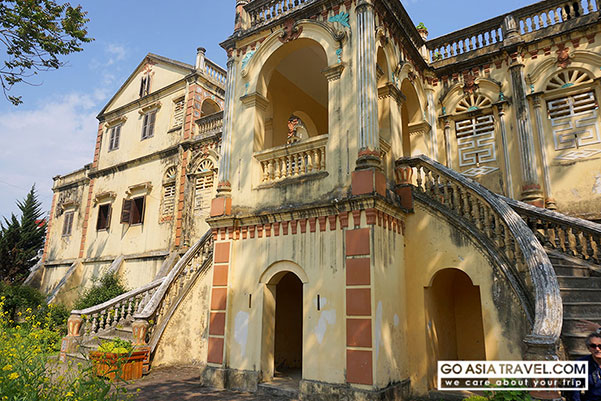
Address: Town centre, Bac Ha, Lao Cai district.
Directions: In the centre of town there is a big bend in the main road through, and it is just there.









